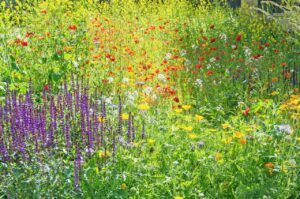The sacred in flowers
photograph by Gordon Humphreys
The ideology of scientism, so prevalent in our thought and culture especially in the west, has obscured the most fundamental dimensions of existence – the sacred – which includes our connection with the rest of creation. To restore the sacred to our lives is imperative, and it is possible for this to happen as the sacred is not annihilated, but merely buried. For sacred wisdom is within each person, and in all of creation – that of God in every one as the Quaker George Fox puts it. Interestingly the original is the two words ‘every’ and ‘one’ (possible to include all creation), whereas it got changed to ‘everyone’ (possibly implying just the humans).
Finding our way again is about re-establishing this sacred wisdom – different from intelligence and knowledge-based thinking. Rather wisdom is a way of knowing that transcends and unites. This quote from Thomas Merton is helpful, he says wisdom,
‘ … dwells in body and soul together and which more by means of myth, of rite, of contemplation, than by scientific experiment, opens the door to a life in which the individual is not lost in the cosmos and in society but found in them.’
Our response in life is not then from an objective detached position, but rather about an intuitive, participatory awareness of what Merton calls ‘the hidden wholeness’ of all reality. In other words, the world is so much more than facts and material existence, but includes this vast dimension of ‘more than ourselves’ with all the associated wonder and reverence. The cosmos becomes spiritualised, and transfigured, and divinised. Through contemplation, Merton writing as a Christian monk, but also in dialogue with the great traditions of the East sees growing in wisdom, (he also uses the terms sophia and sapientia) as linked to increasing conformation to the figure of Christ. Yet this wisdom or sapiential orientation is found in all religions, and links to understanding that creation is in itself a manifestation of divinity.
‘The forms and individual characters of living and growing things, of inanimate beings, of animals and flowers and all nature, constitute their holiness in the sight of God. Their inscape is their sanctity. It is the imprint of His wisdom and His reality in them.’
Merton is seeing here a dimension that reveals harmony, a pattern and a deep sense of order. Pat O’Connell describes Merton’s insight this way: ‘The same mystery of Being that that finds its definitive manifestation in Christ also is disclosed in many different forms through the natural or cosmic revelation available to all.’
Merton associated wisdom from his reading, dreaming and reflections on the figure from Proverbs chapter 8 who is playing and delighting in all of creation – wisdom is in the feminine, and in play celebrating joy, spontaneity and freedom. Harmony, personal, collective, and cosmic, comes from balancing wisdom with scientific knowledge: balancing the intuitive, spiritual, and spontaneous with the objective, analytic and abstract. Wisdom is needed to counteract the current state of the world, by keeping alive ‘an intersubjective knowledge, a communion in cosmic awareness and in nature … a wisdom based on love.’
